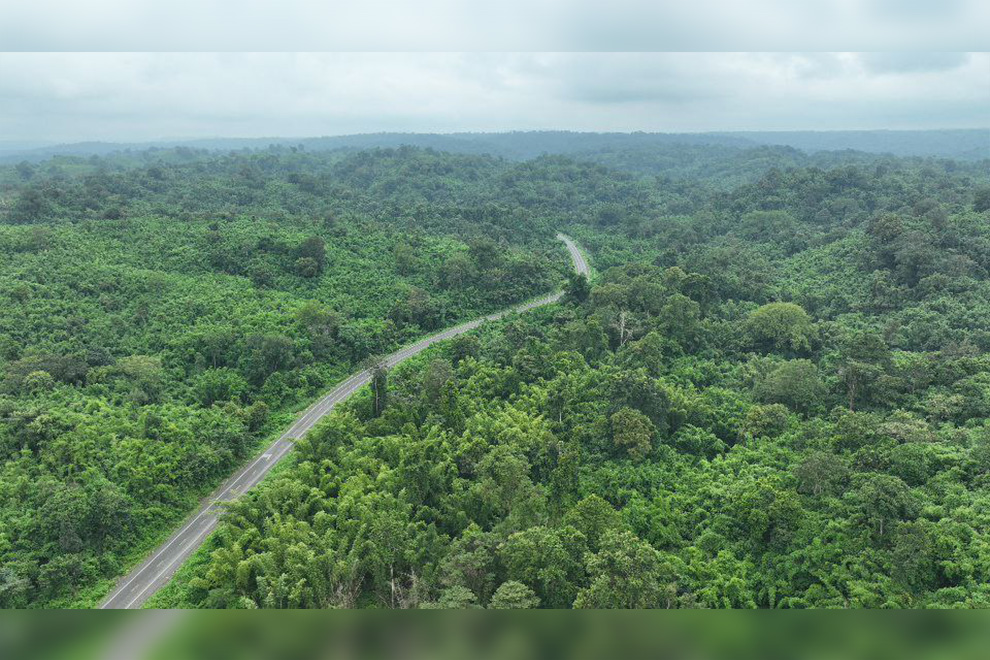
Forest cover in a community protected area in Mondulkiri province. Environment ministry
Most forest communities serve as a frontline defence for protecting natural resources by helping prevent crimes and reducing total dependence on forest resources through the development of alternative livelihoods. However, some community members are acting contrary to this mission and are now facing legal consequences.
On May 7, the Ministry of Environment revealed that some communities in protected natural areas have been illegally exploiting the forest resources under their management. This includes the sale, rental, clearing, encroachment and illegal logging of forests for purposes other than conservation.
Such actions, the ministry warned, “lead to the loss of forest cover and wildlife habitats, and cause serious harm to the nation’s natural resources.”
The ministry issued a public notice, especially directed at members and management committees of all protected area communities, stating that these actions are violations of the Environmental and Natural Resources Code, specifically point one of Article 372.
“Protected area communities and/or their members do not have the right to cut, log, clear or convert protected forest land into agricultural use or private ownership, nor may they sell, rent, mortgage, donate, trade, divide, exchange or transfer community-managed land in protected areas to any individual,” the code states.
“We will take action against any individuals or communities committing natural resource crimes, without exception,” the ministry warned.

Communities are provided with alternative employment options so they are not completely dependent on forest resources. Environment ministry
As of 2024, a total of 193 protected area communities have been established, covering 332,108 hectares of land and involving more than 70,000 households across 15 provinces, according to ministry spokesperson Khvay Atitya.
He explained that the purpose of establishing the communities is to encourage local people to understand and engage in sustainable use and management of natural resources.
Cambodia has more than 7 million hectares of protected areas, accounting for over 41 per cent of the Kingdom’s land area. However, there are currently just over 1,000 park rangers, 34 of them women. This staffing shortage underscores the critical need for participation from local communities living in and around protected areas to support conservation efforts.
“Protected area communities are our shield for safeguarding natural resources. They also contribute to improving their livelihoods by reducing the need to enter forests, which they once depended on 100 per cent, through new livelihood options such as livestock raising, vegetable farming or offering ecotourism services and trading activities,” he said.
The ministry appealed to all members and management committees of protected area communities to rigorously comply with the law — particularly the Environmental and Natural Resources Code — and other relevant legal frameworks to ensure national natural resources are sustainably protected and used for the long-term well-being of all community members.
Preng Soksary, head of the Putrom Protected Area Community in Mondulkiri province, asserted that no members of his community have breached community regulations or the environmental code. However, he said that in recent months, the community discovered that about six trees had been illegally logged by outsiders.
“In my community, no one cuts trees, grabs land or illegally trades timber. Our area is small — just 443 hectares — so we manage it well,” he told The Post, on May 8.
He expressed his support for the environment ministry’s enforcement actions against any community members who violate the law.










